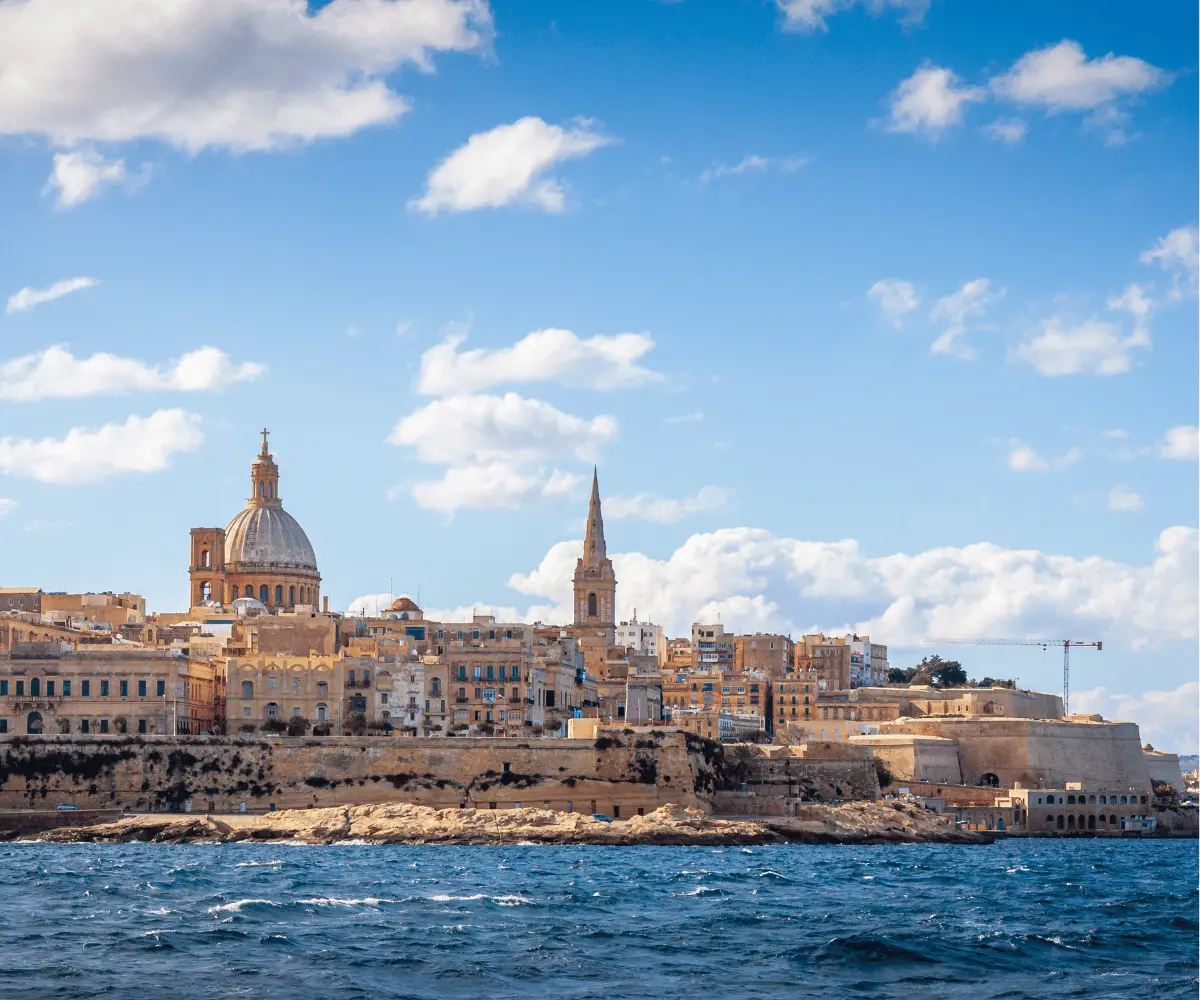Europe
Import and Export to Malta
From artificial intelligence and blockchain to Fintech and IoT, Malta is leading the charge in digital transformation. But while its regulatory framework is business-friendly, importing into this EU island nation still requires strict compliance. If you’re looking to export to Malta, understanding local regulations, navigating customs procedures, and securing the right permits is critical.

Tax
Up to 18%
Duty
Up to 7%
Lead Times
3-4 Weeks
Restricted Items
N/A
Best Carrier Option
Freight Forwarder
Non-Working Days
Saturday, Sunday, and Public Holidays
Prominent Language
Maltese; English
Why Export to Malta?
Malta’s strategic location, nestled between Europe and North Africa, makes it a natural trade hub. Despite its small size, the country plays a disproportionately large role in European and regional trade. As a full member of the EU, Malta provides access to the single market, offering massive potential for exporters of high-tech gear, especially when aiming to serve nearby Southern Europe and North African markets.
Malta’s pro-business government and stable economy have attracted tech innovators and global investors. It’s no surprise that companies in blockchain, Fintech, and AI are setting up operations here, creating an ideal environment for high-tech goods and services.
Population
0.55 M
Biggest Industry by Export
Machinery and Transport Equipment
Capital City
Valletta
Biggest Industry by Import
Mineral Fuels and Oil
Tech Trade Opportunities (and Challenges) in Malta
Opportunities Abound
Malta’s efforts to become a regional tech powerhouse present a unique opportunity for exporters. The local demand for high-tech gear — servers, networking devices, testing equipment, and more — is only expected to grow as more international firms set up shop.
Malta is also a launchpad to nearby markets like Tunisia and Libya. Many companies use it as a strategic base to serve North Africa while enjoying EU regulatory protections.
Common Trade Pain Points
Despite the opportunity, exporters often face:
- Lack of direct shipping routes (especially for partial shipments)
- Local red tape around dual-use items
- Delays caused by incomplete or incorrect documentation
- Confusion over EU regulations versus local implementation
- Concerns about security deposits for TI relief
TecEx solves these problems with a seamless, fully-managed compliance service. We know the process, the paperwork, and the people, so you don’t have to.
The Compliance Landscape | Key Requirements for Exporting to Malta
EORI Number Malta
If you’re exporting from outside the EU, your first requirement is an EORI number (Economic Operator Registration and Identification). This number is mandatory for lodging customs declarations and Summary Declarations. Without it, your goods won’t move past the border.
At TecEx, we simplify this process. We assist you in securing your EORI number for Malta, ensuring your shipments are fully compliant from the outset. No paperwork headaches, just smooth progress.
Customs Clearance Malta: Navigating EU Rules
Malta follows EU customs legislation. When goods arrive, they are subject to customs supervision and must be declared according to their classification under the Combined Nomenclature (CN). This determines:
- Applicable import duties and taxes
- Trade protection measures
- VAT obligations
- Import licensing and technical compliance requirements
Our team ensures all declarations, tariff classifications, and documentation are accurate and complete, helping you avoid delays or penalties at the border.
Top Countries that Trade with Malta
Europe
France
Europe
The United Kingdom (UK)
Licensing & Temporary Import Relief in Malta
The good news is that most goods don’t require import licenses in Malta. However, exceptions apply to restricted or sensitive items, such as dual-use technologies. This is where exporters often run into unexpected friction. Even if your product is “standard” in your home country, it may be flagged under EU regulations.
For temporary imports (e.g., testing equipment, trade show displays), Malta offers Temporary Importation (TI) relief, allowing duty-free entry under strict conditions. To qualify, goods must be returned within a set time, and you may need to pay a security deposit equal to the full duty/VAT amount.
The TecEx Advantage | Full-Service DDP Compliance in Malta
Exporting to Malta, particularly high-value tech, requires more than just shipping; it demands expert navigation of pre-compliance checks, licensing, customs clearance, and final delivery, all while ensuring adherence to strict EU regulations.
That’s where TecEx comes in. As your trusted partner, we offer a full-service Delivered Duty Paid (DDP) solution that includes IOR and EOR services. We handle all registration and representation requirements so you don’t have to.
Why Partner with TecEx?
We act as your Importer of Record (IOR), handling:
- EORI number registration
- Assistance with customs brokerage and clearance
- Pre-compliance and technical documentation
- License and permit acquisition
- VAT and duty payment on your behalf
- Final delivery anywhere in Malta
We handle duties and taxes, ensure seamless delivery to your end user, and specialize in managing dual-use and restricted technologies, minimizing risk, and avoiding regulatory pitfalls. With our deep understanding of EU trade laws and the complexities of tech imports, we ensure frictionless customs clearance in Malta, helping you sidestep delays, penalties, and burdensome paperwork.
Our strategic guidance also positions your business to scale across the EU and MENA regions from a single, secure trade hub. With us, your shipments arrive legally, efficiently, and without straining your internal resources.
Ready to Export or Import to Malta?
Talk to a TecEx expert today and let us simplify your next export to Malta.



